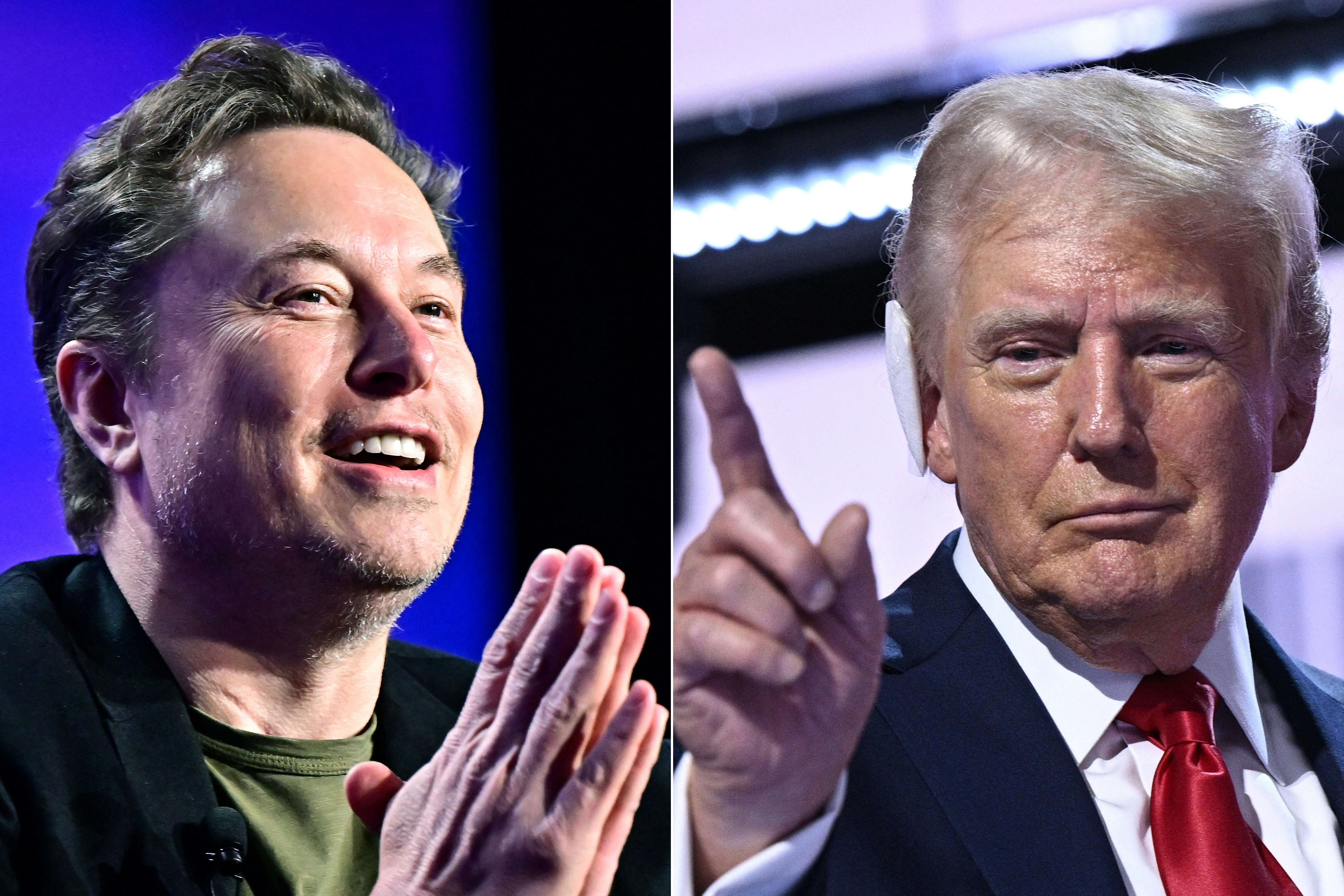How poking fun at Donald Trump’s lisp could backfire
Here we are, mocking a man for his speech impediment rather than engaging with the substance of his words, writes Marc Burrows. It’s a dangerous game – and completely unnecessary


There is a lot to criticise Donald Trump for. You could fill books with it – people have. His policies, his conduct in and out of office, his personal behaviour … the 34 counts of falsifying business records to commit election fraud he was found guilty of this year... take your pick.
He doesn’t appear to be a very nice man. That’s just my opinion. Whichever way you slice it, there is so much juicy material to choose from when critiquing the once-and-maybe-future-president … that there really is no need to pull him up on a speech impediment.
And yet, that seems to be the takeaway from last night’s excruciatingly dull and occasionally deeply weird conversation between Donald Trump and Elon Musk, hosted on Musk’s X platform (which, coincidentally, I used to work for). Not the policies, not Trump’s praising of Kim Jong Un and President Putin, or his accusation that Kamala Harris (who the pair painted as radically left-wing, with very little justification) is “stealing his policies”.
The main take-away was that Trump seems to have developed a lisp, something which his campaign actively denied and his supporters pinned to audio issues. Denying reality is another strong Trump criticism — the lisp is very clearly there.
The thing is … so what? The issue is with what Trump is saying, not with the way he’s saying it. Lots of people have lisps, millions in fact. Something like 11.5 per cent of the US population has some form of speech impediment. As the old saying goes, “Donald Trump won’t hear you making fun of the way he speaks, but your friend with a lisp might”.
Those of us on the political left often pride ourselves in being the “good guys”. We think we’re better than the other side: They’re nasty. We’re nice. It’s a reductive way of looking at things — believing in trickle-down economics doesn’t make you a bad person, it just makes you (in my opinion) incorrect. You’re supposed to play the ball, not the person. And Trump’s ball is incredibly easy to boot. You don’t win by abandoning the moral high-ground and playing dirty.
Yet here we are, mocking a man for his speech patterns rather than engaging with the substance of his words. It’s a dangerous game, one that not only distracts from the real issues at hand – like Trump’s recent indictment; his showdown with Harris in November; or Musk wading in to stir the pot during the recent UK riots – but also reinforces harmful stereotypes about those with speech differences.
When we focus on superficial elements like a lisp, we’re not just being petty – we’re actively harming our own cause. It gives Trump supporters an easy out, allowing them to dismiss all criticism as personal attacks rather than substantive disagreements. It’s a gift to those who want to paint the left as elitist and out of touch.
And it’s hypocritical. Many on the left have rightly called out ableist language and discrimination. We’ve championed inclusivity and fought against stigma. To turn around and mock someone for a speech impediment – regardless of who that person is – undermines those efforts and exposes a troubling double standard.
This isn’t about being "nice" or taking the high road for its own sake. It’s about being effective. It’s about staying focused on what actually matters. When we stoop to mocking physical attributes or speech patterns, we’re not convincing anyone. We’re not changing minds. We’re just adding more noise to an already cacophonous political discourse.
There’s also a broader point to be made about the nature of political debate in the age of social media. Platforms like X (formerly Twitter) tend to reward quick, pithy responses over nuanced discussion. It’s easier to get engagement with a snarky comment about someone’s lisp than it is to dissect their policy positions. But this race to the bottom is corrosive to our political culture.
We need to be better than this. We need to challenge ourselves and others to engage with ideas, not superficialities. When Trump speaks, we should be listening to the content of his words, analysing his arguments and responding with facts and reasoned counter-arguments. There’s plenty there to work with without resorting to schoolyard taunts – and bringing ourselves down to his level.
It’s about setting a standard for how we conduct our political discourse. If we normalise mocking physical attributes or speech patterns, we open the door for that kind of behaviour across the board. Do we really want a political culture where candidates are judged more on their elocution than their ideas?
In the end, Donald Trump’s legacy won’t be defined by how he pronounces his “Ss”. It will be defined by his actions, his policies, and the impact he’s had on American and global politics and society. Those are the things we need to be talking about, debating, and yes, criticising when necessary. Anything else is just a distraction – and it’s one we can’t afford.
Join our commenting forum
Join thought-provoking conversations, follow other Independent readers and see their replies
Comments

Bookmark popover
Removed from bookmarks